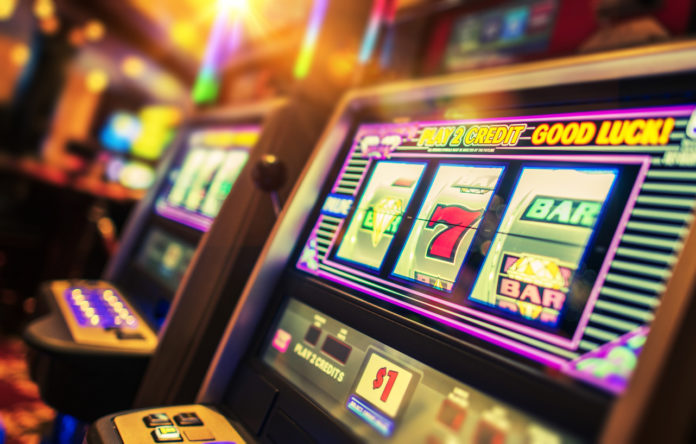The online gambling industry is worth billions and is slated to make even more in the following years. So, it’s a prime market for people who want to take advantage of the increasing popularity of online casinos. Rogue operators are prevalent in this sector because it mostly relies on trust. When you open an account at a gambling site and give them your money, you trust them to provide the necessary services as products. You hope the casino has fair games, pays out winnings and honours bonuses, among other things. A majority of companies are reputable and offer customers all these, and more.
How can players be sure they can believe the quality of the products and services a particular operator offers? You can’t rely solely on the casino’s word. It’s why regulators implement measures to protect consumers. Almost every jurisdiction mandates independent testing for licensed operators. Therefore, if you play at a registered gaming platform, you are confident about the standard of games and other offerings. Why are third-party audits necessary, though? What benefits come with gambling at a regularly audited website? This guide explains.
Who Conducts Audits?
When talking about independent evaluations, it means gambling operators leave the process to third parties. It’s the only way to ensure fairness. Besides regulators and operators, testing auditors also work with software manufacturers. When online casinos were new in the gambling industry, Price Waterhouse Coopers was the go-to for audits. Later, various agencies were created for the sole purpose of testing gambling software, games and other aspects. eCOGRA is among the top auditors in the business. Created in 2003, the UK-based organisation boasts a stellar reputation. An eCOGRA seal on a gambling website is a mark of quality.
Several other testing houses have made a name for themselves as trustworthy independent auditors. GLI, iTech Labs and TST are some examples. These evaluation bodies handle all the necessary work so that gamblers don’t have to worry about the legitimacy of a casino’s products. For example, if Stake indicates it gets third-party audits, then you are confident the advertised odds with Plinko gambling are above board. Hence, when finding out the registration status of a gambling website, check out its seals, as well, to see if there is one from a recognised testing agency.
How Evaluations Happen
Learning how auditors carry out their roles helps players understand their importance. What does a testing agency check for to determine that a gambling site is working as it should? The scope of work varies from one organisation to another, but the intended outcomes are the same. So, this section highlights some of the reasons operators are tested.
Checking Random Number Generators
Online casinos would not be possible without RNGs. These systems ensure game outcomes are as random as possible. They mimic natural randomness using algorithms. An RNG uses a seed to generate a string of numbers to determine a result. The system dictates the next card in baccarat, the roll of a die or the next spin in a slot machine. Because RNGs don’t follow any patterns, they are unpredictable and virtually unhackable. Nonetheless, you can’t always trust a dubious operator not to try and rig the game in some way. Testing agencies test RNGs to see if they are intact. The integrity of the RNG is synonymous with fairness. A functional RNG should not have any bias, leaving outcomes to luck. Never assume the RNGs of a regulated casino are working optimally. An operator that neglects testing requirements might not even be aware when its gaming software fails.
Verifying the Safety of Payment Methods
Another vital testing area is banking. Players should be able to deposit and withdraw cash to gamble on real-money games. However, it’s not enough for an online casino to provide payment options. It must ensure they are safe. Players have to hand over a lot of information to gambling operators, including financial details. Thus, casinos should do whatever is possible to protect this information. Users must be able to send and receive money without compromising their safety. Auditors also evaluate the safety of deposits. If an operator were to close down, customers should recover their funds. For this reason, regulated casinos are mandated to segregate player monies.
Testing Payout Percentages
The payout rate is the average amount a casino gives back to a player in the long term. It assumes a player gambles with 100 credits on a fair game. So, it is represented as a percentage. Most gambling platforms publish their payout percentages on the website, showing customers what to expect when they play on it. For instance, if a casino has a payout rate of 96%, it means that after a prolonged period, the site would have returned 96% of the money wagered. Auditors test gaming sites using actual game outcomes to ensure this theoretical figure is accurate. They also evaluate slot machine RTPs to verify the numbers. The point is to make certain all rates posted are based on fair games.
Security Audits
Regulated gambling websites must provide specific measures to ensure customers can play safely. Licensing authorities have the responsibility to protect consumers. Therefore, they establish security requirements for software, payment methods and customer funds. When a casino undergoes an audit for licensing purposes, it has to demonstrate compliance with these protocols. Yearly evaluations include security testing to guarantee all the necessary measures are in place. Auditors usually analyse both casinos and suppliers to make sure neither exposes gamblers to unnecessary risks.
Independent audits are a critical measure of the integrity of a gambling site. They determine the quality and fairness of a casino’s offerings. Additionally, they are requirements gambling regulators impose to protect consumers. When comparing gaming websites, look out for a seal of approval from a reputable testing agency, such as eCOGRA, iTech Labs and GLI.










